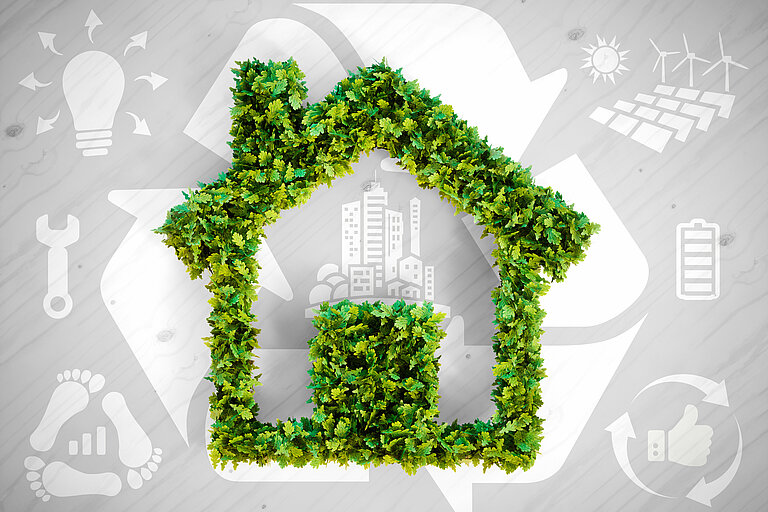Publications
![[Translate to Englisch:] [Translate to Englisch:]](/fileadmin/user_upload/Presse_und_Medien/mediathek/YouTube-Vorschaubild/NOA-Namur-Open-Architecture-Connectivity.jpg)
22.06.2021
ZVEI is in favour of the EU Commission's intention to significantly increase the renovation rate of buildings in Europe. This not only has a positive effect on climate targets, but also gives the entire European population access to buildings with low energy consumption. Increasing the renovation rate is thus also an important step towards increasing energy availability. Technologies that increase the energy efficiency of buildings and improve occupant comfort already exist. The use of energy-efficient technical building equipment (TGA) can make a decisive contribution to achieving climate neutrality by 2050 and reducing greenhouse gas emissions by 55 percent compared to 1990 levels.

According to the ZVEI, existing technologies are the key to increasing the energy efficiency of buildings as well as improving the comfort of users. The EU Commission should take this into account in its current strategy within the framework of the Energy Performance of Buildings Directive (EPBD), which, among other things, provides for energy renovations in the building sector.
The ZVEI supports the fact that the EU Commission wants to significantly increase the renovation rate of buildings in Europe. This will not only have a positive effect on climate targets, but will also give the entire European population access to buildings with low energy consumption. Increasing the renovation rate is thus also an important step towards increasing energy availability. Technologies that increase the energy efficiency of buildings and improve occupant comfort already exist. The use of energy-efficient technical building equipment (TGA) can make a decisive contribution to achieving climate neutrality by 2050 and reducing greenhouse gas emissions by 55 percent compared to 1990 levels.
However, subsidies in the EU member states are essential to ensure that TGA can be used sufficiently for the decarbonisation of the building stock. The targeted doubling of the renovation rate can only be achieved if the member states expand their support measures accordingly. According to ZVEI, the subsidies should be staggered and offer incentives for extensive, deep (deep renovation) and future-proof renovation measures. The introduction of a standard for deep renovation makes sense in this context.
Renovation measures that contribute to the widespread use of innovative technologies and take into account aspects of resource efficiency and circular economy reduce the CO2 emissions of buildings and make them more economical when considered over their lifetime. For this reason, the ZVEI advocates a life cycle assessment of buildings with regard to emissions and costs. To ensure that new building services technologies can also improve the quality of use of buildings in Europe, it is important to future-proof buildings in the course of renovation measures and to use the Smart Readiness Indicator (SRI) and Building Information Modelling (BIM) as cornerstones for the effective use of smart technologies. This should be taken into account and documented above all in the introduction of the Building Renovation Passport.
The ZVEI supports an ambitious European energy and environmental policy and assesses the revision of the EPBD as an opportunity to create future-proof framework conditions for the necessary renovation measures. Only through the successful cooperation of the EU member states can the climate protection goals be achieved.